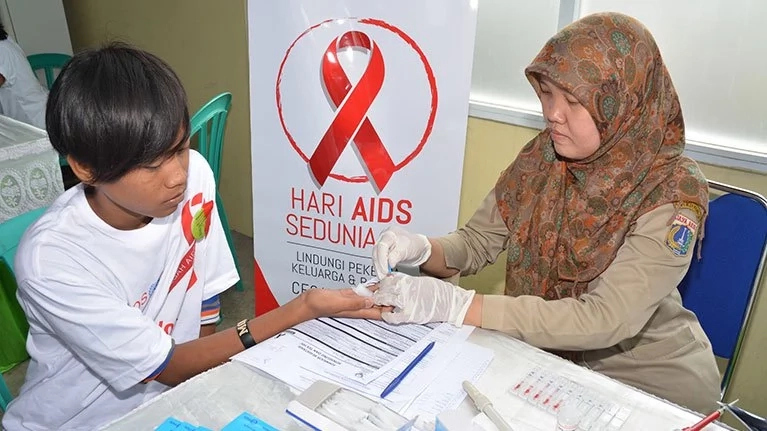A report by the Worldwide Labour Group and the opinion ballot firm, Gallup Worldwide, reveals persistent HIV-related stigma and discrimination on the planet of work.
Greater than 40 years after the AIDS epidemic started, important HIV-related, stigma and discrimination persist, in line with a brand new world survey, launched forward of World Aids Day.
Practically 4 out of ten respondents stated that individuals residing with HIV shouldn’t be allowed to work immediately with those that wouldn’t have HIV. As many as six in ten individuals, additionally supported necessary HIV testing earlier than persons are allowed to work.
The research revealed how stigmatizing and discriminatory attitudes are fuelled by a lack of information on HIV transmission. Just one in two individuals knew HIV can’t be transmitted by sharing a toilet and just one in 4 individuals appropriately answered questions on how HIV is transmitted. Myths and misconceptions persist and contribute to stigma and discrimination.
The report, The ILO Global HIV Discrimination in the World of Work Survey , is the product of a ground-breaking collaboration between the Worldwide Labour Group (ILO) and the opinion ballot firm, Gallup Worldwide. It sheds mild on the causes of the persistence of HIV-related stigma and discrimination on the planet of work. Data was collected from greater than 55,000 individuals in 50 international locations, worldwide.
Learn Additionally: WHO Pandemic Ethics & Policy Summit (6th Dec., 2021)
Views diverse significantly between areas. The bottom tolerance for working immediately with individuals with HIV was present in Asia and the Pacific (solely 40 per cent stated individuals residing with HIV ought to be allowed to work with individuals who wouldn’t have HIV) and within the Center East and North Africa (the place solely 42 per cent stated individuals residing with HIV ought to be allowed to work with individuals who wouldn’t have HIV).
The areas with probably the most optimistic attitudes have been Jap and Southern Africa, the place nearly 90 per cent of respondents stated that working immediately with individuals with HIV ought to be allowed. Larger instructional ranges have been additionally related with optimistic attitudes in the direction of working with these residing with HIV. Globally 68 per cent of these with tertiary schooling agreed that working immediately with individuals residing with HIV ought to be allowed, in comparison with 39.9 per cent of these with solely main schooling.
“It is shocking that, 40 years into the HIV and AIDS epidemic, myths and misconceptions are still so widespread. A lack of basic facts about how HIV is transmitted is fuelling stigma and discrimination,” stated Chidi King, Chief of the ILO’s Gender, Equality, Variety and Inclusion Department (GEDI). “This survey is a wake-up call to reinvigorate HIV prevention and education programmes. The world of work has a key role to play. Stigma and discrimination in the workplace marginalize people, push people living with HIV into poverty, and undermine the goal of decent work.”
Learn Additionally: US Department of Labor Extends Comment Period for COVID-19 Vacination and Testing Emergnecy
The report provides quite a few suggestions, together with implementation of HIV programmes that improve workers’ data of HIV transmission and dispel myths and misconceptions, enhancing the authorized and coverage environment round HIV to guard rights of workers, abolishing necessary HIV testing in line with the ILO Recommendation on HIV and AIDS (No. 200) , enhancing entry to social safety and addressing violence and harassment that may come up from stigma and discrimination, by ratifying and implementing the ILO Violence and Harassment Convention, 2019 (No. 190) .



